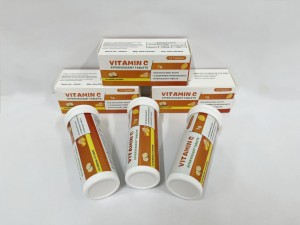Vitamins C and D and zinc supplements are being considered as potential preventive measures against viruses, although the evidence for their effectiveness is and will be inconclusive.
Consumers have easy access to multivitamin and mineral supplements. They are often sold—sometimes unsubstantiated—for their claims and health benefits. But its potential side effects are not always listed on the package.
Vitamins and minerals are collectively referred to as trace elements. These are the basic elements that our body needs to function properly. Our bodies may produce very few micronutrients, or none at all. We get most of these nutrients from our diet.
People often buy micronutrients to prevent disease or as dietary “insurance” in case they don’t get enough of them through their diet.
The general consensus is that these additives are harmless. But they can be dangerous if not dosed correctly. They create a false sense of hope, carry the risk of drug interactions, and may delay more effective treatment.
Vitamins are beneficial when taken for the right reasons and as directed by a doctor. For example, folic acid supplementation by pregnant women has been shown to prevent neural tube defects. People who reduce their intake of red meat without increasing their intake of legumes need vitamin B6 supplements.
But a worrying trend is growing among consumers: intravenous vitamin therapy, often promoted by celebrities, and social media marketing. Intravenous vitamins, nutrients, and fluids can be administered in pharmacies and beauty parlors, and more recently in the form of drips. Users trust these remedies to relieve colds, slow down aging, improve complexion, relieve hangovers, or simply improve well-being.

Intravenous vitamin therapy has previously only been used in healthcare settings to help patients who cannot swallow, require fluid replacement, or have electrolyte imbalances.
However, evidence supporting other benefits of intravenous vitamin therapy is limited. Regardless of how you choose to get supplemental vitamins, there are risks.
Most consumers use multivitamins. But others take large doses of certain nutrients, especially vitamin C, iron, and calcium.
As pharmacy educators, we feel it is important to highlight the potential side effects of commonly used vitamins and minerals:
Vitamin A/retinol is helpful in maintaining good eye health. But ingestion of more than 300,000 IU (units) can cause toxicity. Chronic toxicity (hypervitaminosis) has been associated with doses greater than 10,000 IU per day. Symptoms include liver damage, vision loss, and intracranial hypertension. It can cause birth defects in pregnant women.
Vitamin B3 is beneficial for the health of the nervous system and digestion. In moderate to high doses, it can cause peripheral vasodilation (widening or widening of the blood vessels in the extremities, such as the legs and arms), resulting in flushing, burning, itching (itchy skin), and hypotension (low blood pressure). pressure).
Vitamin B6 is essential for brain development and the maintenance of a healthy immune system. However, at doses greater than 200 mg per day, it can cause damage to peripheral nerves, such as those in the arms and legs (resulting in numbness, often referred to as “tingling”).
Vitamin C is an antioxidant that helps repair body tissues. High doses can cause kidney stones and interactions with cancer drugs such as doxorubicin, methotrexate, cisplatin, and vincristine.
Vitamin D is essential for the development of bones and teeth. In high doses, it can cause hypercalcemia (higher than normal levels of calcium in the blood), leading to excessive thirst, excessive urination, seizures, coma, and death.
Calcium is essential for bone health but can contribute to constipation and gastric reflux. High doses can cause hypercalciuria (increased levels of calcium in the urine), kidney stones, and secondary hypoparathyroidism (underactive parathyroid glands). It can interact with zinc, magnesium and iron.
Magnesium is important for muscle and nerve function. In high doses, it can cause diarrhea, nausea, and abdominal cramps, and may interact with tetracyclines (antibiotics).
Zinc impairs taste and smell, and consumption of more than 80 mg per day has an adverse effect on the prostate gland.
High doses of selenium can cause hair and nails to fall out or break, damage to the skin and nervous system, rashes, fatigue, and emotional disturbances.
Consuming 100–200 mg of iron per day can lead to constipation, dark stools, dark teeth, and abdominal pain.
Regular exercise and a balanced diet are likely to benefit us and reduce stress.
Check with your doctor before taking supplements to reduce the risk of adverse reactions.
Be aware of the potential side effects of vitamins and seek medical advice if symptoms occur.
Post time: Aug-29-2023




